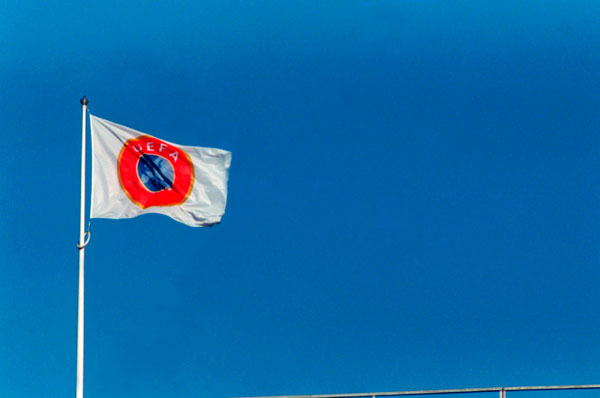European federation UEFA has found itself in the same confusion as the African and Asian confederations ahead of elections to pick its delegates to the FIFA Council.
Iceland’s Geir Thorsteinsson has pulled out of the election due to have been a formality at UEFA’s forthcoming annual congress in Helsinki, Finland, on April 5.
Now UEFA must rethink its strategy, following the enforced examples of both CAF and the AFC. Those confederations have had to prepare for ‘extra’ elections shortly before FIFA Congress in Manama, Bahrain, in May after the withdrawal of candidates following eligibility issues.
The most high-profile concerned Danny Jordaan, president of the South African Football Association and bid leader and then chief executive of the country’s hosting of the 2010 World Cup finals.
Then, on Friday, Russia’s Vitaly Mutko was forced to withdraw his UEFA candidacy to maintain the FIFA seat he has held since 2009; the world governing body’s review committee ruled that this was incompatible with his political status as a Deputy Prime Minister.
This meant a clear, unopposed run for the remaining four candidates for four-year terms: Sandor Csyani (Hungary), Costakis Koutsokoumnis (Cyprus), Dejan Savicevic (Montenegro) and Thorsteinsson. Germany’s Reinhard Grindel is the only candidate for a further European place, which has a two-year term.
However UEFA now has an empty slot to fill through a separate election after the withdrawal of Thorsteinsson, the recently-retired chairman of the Icelandic football association.
Referring to statutes changes being put before UEFA at its congress, he told mbl.is: “Although I have not been directly ruled out I do not now think I should be entitled to join the FIFA Council.
“UEFA’s executive committee has proposed an amendment to rules for elections so that in the future the only people eligible to stand should be the chairmen, vice-chairmen and chief executives of national associations.
“This is a proposal for congress from UEFA which, I understand, enjoys great support among the various European football associations. Therefore I decided it would be appropriate to step back now I am no longer a chairman myself.”
Thorsteinsson recently retired after the conclusion of fifth two-year term as head of the KSI, the most remarkable in Iceland’s history with their debutant’s victory over England and progress to the quarter-finals of the European Championship in France last year.
He said his decision was unconnected with the Mutko issue, nor had the eligibility review been an issue in his own case. He did say that, as a member of various FIFA and UEFA committees, he hoped to continue to work in football.
A rule that only active senior officials of member associations should be eligible to stand for senior UEFA representation was one of a number of changes to statutes approved by the executive committee last month.
Its meeting in Nyon on February 9 agreed a raft of proposals to recommend to congress.
Other changes should include:
1, Introduction of term limits for the UEFA president and members of the exo, with a maximum of three four-year terms;
2, Granting of two full member positions on the UEFA exco to representatives of the European Club Association (ECA);
3, Appointing two independent members to the UEFA Governance and Compliance Committee;
4, Introducing a “transparent bidding process” for finals venues;
5, Adding a specific article to statutes to set down ethics and good governance as “a statutory objective of UEFA”; and
6, Allowing experts from national associations to chair UEFA committees (in addition to exco members).







